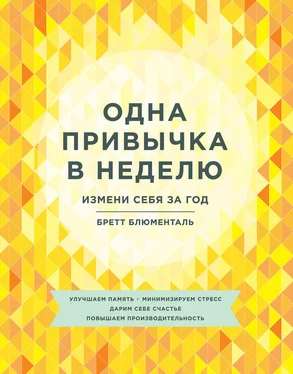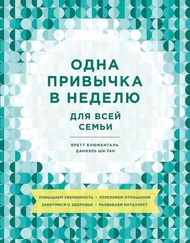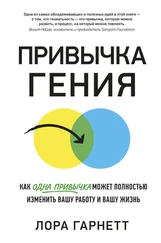New Treatments Prevent Brain Injury Hours After Stroke in Rats. University of California – San Francisco, accessed December 12, 2013 // http://www.eurekalert.org/pub_releases/2006-12/uoc-ntp122806.php.
Kuriyama S. et al. Green Tea Consumption and Cognitive Function: A Cross-Sectional Study from the Tsurugaya Project // American Journal of Clinical Nutrition, 2006. Vol. 83, № 2. P. 355–361.
Kuriyama S. et al. Green Tea Consumption Is Associated with Lower Psychological Distress in a General Population: The Ohsaki Cohort 2006 Study // American Journal of Clinical Nutrition, 2009. Vol. 90, № 5. P. 1390–1396.
Niu N. K. et al. Green Tea Consumption Is Associated with Depressive Symptoms in the Elderly // American Journal of Clinical Nutrition, 2009. Vol. 90, № 6. P. 1615–1622.
Nobre A. C. et al. L-theanine, a Natural Constituent in Tea, and Its Effect on Mental State // Asia Pacific Journal of Clinical Nutrition, 2008. Vol. 17, № 1. P. 167–168.
Owen G. N. et al. The Combined Effects of L-theanine and Caffeine on Cognitive Performance and Mood // Nutritional Neuroscience, 2008. Vol. 11, № 4. P. 193–198; Kelly S. P. et al. L-Theanine and Caffeine in Combination Affect Human Cognition as Evidenced by Oscillatory Alpha-Band Activity and Attention Task Performance 1–3 // Journal of Nutrition, 2008. Vol. 138, № 8. P. 1572S–1577S.
Weiss D. J., Anderton C. R. Determination of Catechins in Matcha Green Tea by Micellar Electrokinetic Chromatography // Journal of Chromatography, 2003. Vol. A 1011. № 1–2. P. 173–180.
Rozin P., Royzman E. B. Negativity Bias, Negativity Dominance, and Contagion // Personality and Social Psychology Review, 2001. Vol. 5, № 4. P. 296–320.
Rosenthal R., Jacobson L. Pygmalion in the Classroom: Teacher Expectation and Pupils’ Intellectual Development. New York: Irvington Publishers, 1992.
Cunningham A. E., Stanovich K. E. What Reading Does for the Mind // Journal of Direct Instruction, 2001. Vol. 1, № 2. P. 137–149.
Reading ‘Can Help Reduce Stress’ // Telegraph, accessed March 1, 2014 // http://www.telegraph.co.uk/health/healthnews/5070874/Reading-can-help-reduce-stress.html.
Can Exercising Your Brain Prevent Memory Loss? // Academy of Neurology, accessed March 20, 2014 // https://www.aan.com/PressRoom/Home/PressRelease/695.
Ariga A., Lleras A. Brief and Rare Mental ‘Breaks’ Keep You Focused: Deactivation and Reactivation of Task Goals Preempt Vigilance Decrements // Cognition, 2011. Vol. 118, № 3. P. 439–443 // doi:10.1016/j.cognition.2010.12.007.
Balci R., Aghazadeh F. The Effect of Work-Rest Schedules and Type of Task on the Discomfort and Performance of VDT Users // Ergonomics, 2003. Vol. 46, № 5. P. 455–465.
Gao C. et al. The Effects of VDT Data Entry Work on Operators // Ergonomics, 1990. Vol. 33, № 7. P. 917–923.
Mclean L. et al. Computer Terminal Work and the Benefit of Microbreaks // Applied Ergonomics, 2001. Vol. 32, № 3. P. 225–237.
Henning R. A. et al. Frequent Short Rest Breaks from Computer Work: Effects on Productivity and Well-Being at Two Field Sites // Ergonomics, 1997. Vol. 40, № 1. P. 78–91.
Giltay E. J. et al. Dispositional Optimism and the Risk of Depressive Symptoms during 15 Years of Follow-Up: The Zutphen Elderly Study // Journal of Affective Disorders, 2006. Vol. 91. P. 45.
Giltay E. J. et al. Dispositional Optimism and the Risk of Depressive Symptoms during 15 Years of Follow-Up: The Zutphen Elderly Study // Journal of Affective Disorders, 2006. Vol. 91. P. 45.
Conversano C. et al. Optimism and Its Impact on Mental and Physical Well-Being // Clinical Practice and Epidemiology in Mental Health, 2010. Vol. 6. P. 25–29 // doi:10.2174/1745017901006010025.
Vaillant G. E. Triumphs of Experience: The Men of the Harvard Grant Study. United States: Belknap Press, 2012.
Lennox S. S. et al. The Effect of Exercise on Normal Mood // Journal of Psychosomatic Research, 1990. Vol. 34, № 6. Pp. 629–636; Trost S. G. Active Education: Physical Education, Physical Activity and Academic Performance // Active Living Research, 2007. P. 1–3.
Lennox S. S. et al. The Effect of Exercise on Normal Mood // Journal of Psychosomatic Research, 1990. Vol. 34, № 6. Pp. 629–636; Trost S. G. Active Education: Physical Education, Physical Activity and Academic Performance // Active Living Research, 2007. P. 1–3.
Lennox S. S. et al. The Effect of Exercise on Normal Mood // Journal of Psychosomatic Research, 1990. Vol. 34, № 6. Pp. 629–636; Trost S. G. Active Education: Physical Education, Physical Activity and Academic Performance // Active Living Research, 2007. P. 1–3.
Pereira A. C. et al. An in vivo Correlate of Exercise-Induced Neurogenesis in the Adult Dentate Gyrus // Proceedings of the National Academy of Sciences USA, 2007. Vol. 104. P. 5638–5643.
Reid K. et al. Aerobic Exercise Improves Self-Reported Sleep and Quality of Life in Older Adults with Insomnia // Sleep Medicine, 2010. Vol. 11, № 9. P. 934–940.
Bartlett M. Y., DeSteno D. Gratitude and Prosocial Behavior: Helping When It Costs You // Psychological Science, 2006. Vol. 17, № 4. P. 319–325.
Wood A. M. et al. Gratitude and Well-Being: A Review and Theoretical Integration // Clinical Psychology Review, 2010. Vol. 30, № 7. P. 890–905.
Emmons R. Thanks!: How Practicing Gratitude Can Make You Happier. New York: Mariner Books; reprint edition 2008. P. 30; Wood A. M. et al. Gratitude Influences Sleep through the Mechanism of Pre-Sleep Cognitions // Journal of Psychosomatic Research, 2009. Vol. 66, № 1. P. 43–48.
Algoe S. et al. It’s the Little Things: Everyday Gratitude as a Booster Shot for Romantic Relationships // Personal Relationships, 2010. Vol. 17. P. 217–233.
Emmons R., McCullough M. Counting Blessings versus Burdens: An Experimental Investigation of Gratitude and Subjective Well-Being in Daily Life // Journal of Personality and Social Psychology, 2003. Vol. 84, № 2. P. 377–389.
Van Boven L., Gilovich T. To Do or to Have? That Is the Question // Journal of Personality and Social Psychology, 2003. Vol. 85, № 6. P. 1193–1202.
Deaton A., Kahneman D. High Income Improves Evaluation of Life but Not Emotional Well-Being // Proceedings of the National Academy of Sciences of the United States of America, 2010. Vol. 107, № 38. P. 16489–16493 // doi:10.1073/pnas.1011492107.
Caprariello P. A., Reis H. T. To Do, to Have, or to Share? Valuing Experiences over Material Possessions Depends on the Involvement of Others // Journal of Personality and Social Psychology, 2013. Vol. 104, № 2. P. 199–215.
DeLeire T., Kalil A. Does Consumption Buy Happiness? Evidence from the United States // International Review of Economics, 2010. Vol. 57, № 2. P. 163–176.
Читать дальше
Конец ознакомительного отрывка
Купить книгу






![Лора Гарнетт - Привычка гения [Как одна привычка может полностью изменить вашу работу и вашу жизнь] [litres]](/books/385616/lora-garnett-privychka-geniya-kak-odna-privychka-mozh-thumb.webp)





